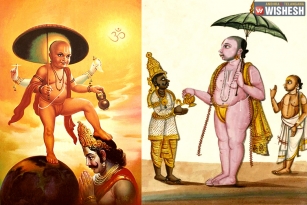
Bhagavad gita Chapter 2, Verse 47
karmany evadhikaras te ma phalesu kadacana
ma karma-phala-hetur bhur ma te sango 'stv akarmani
Meaning of words
1. karmani--prescribed duties
2. eva--certainly
3. adhikarah-right
4. te--of you
5. ma- never
6. phalesu--in the fruits
7. kadacana--at any time
8. ma- never
9. karma-phala--in the result of the work
10. hetuh- cause
11. bhuh- become
12. ma- never
13. te--of you
14. sangah- attachment
15. astu--be there
16. akarmani--in not doing
Meaning of the verse
You have a right to perform your prescribed duty, but you are not entitled to the fruits of action. Never consider yourself to be the cause of the results of your activities, and never be attached to not doing your duty.
Explanation
There are three types of duties, prescribed duties, capricious work, and inaction. Prescribed duties are referred to activities which are performed while one is in the modes of material nature. Capricious work means actions without the sanction of authority, and inaction means not performing one's prescribed duties. The Lord Krishna advises Arjuna not be inactive, but that he perform his prescribed duty without being attached to the result. One who is attached to the result of his work is also the cause of the action. Thus he is the enjoyer or sufferer of the result of such actions.
Arjuna was therefore advised by the Lord to fight as a matter of duty without attachment to the result. Any attachment, positive or negative, is cause for bondage. Inaction is sinful. Therefore, fighting as a matter of duty was the only auspicious path of salvation for Arjuna.
It may be postulated that since the results of all actions are attained simply by worshipping the Supreme Lord, what is the use of any other actions other than devotion to Him? To counter this conclusion the Supreme Lord states that all living entities have the right to perform actions but none have the right to claim the results. Lord Krishna states that one should not let the anticipated results of actions are the cause of motivation. This will also help one from getting frustrated or upset when the action performed by him is not successful. This is a very important point to remember because; this will avoid desperation and gives confidence to try again and again.
By Premji


















